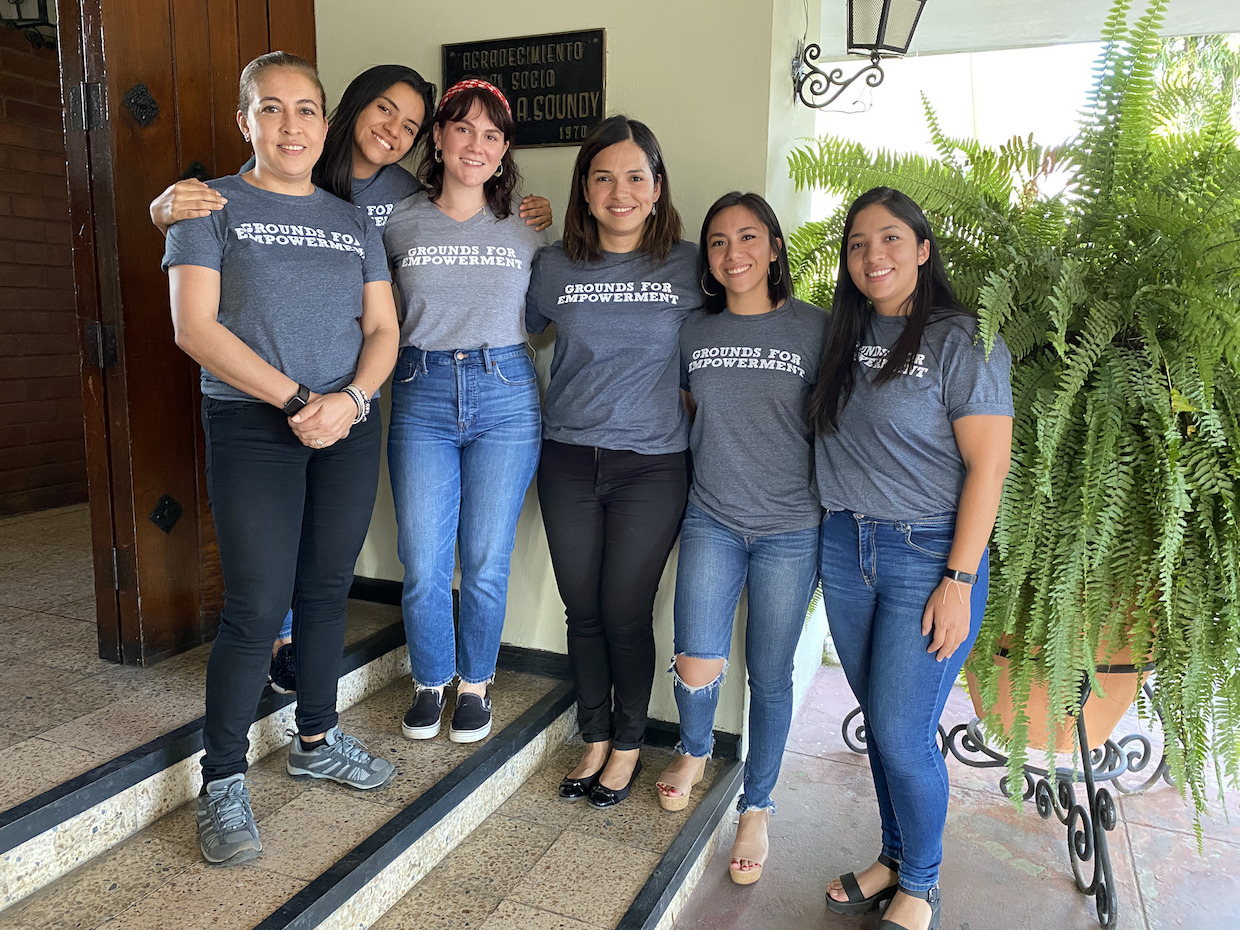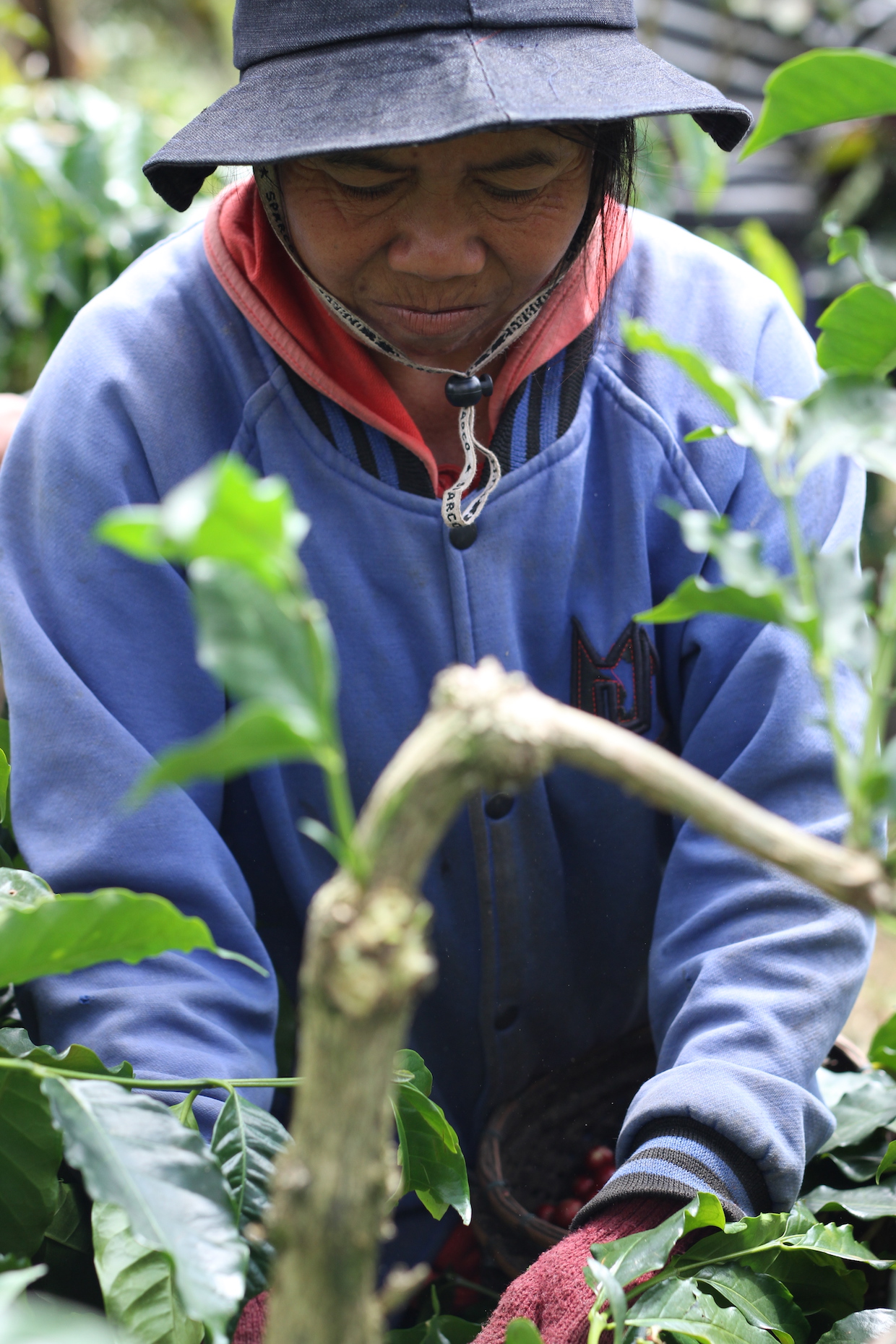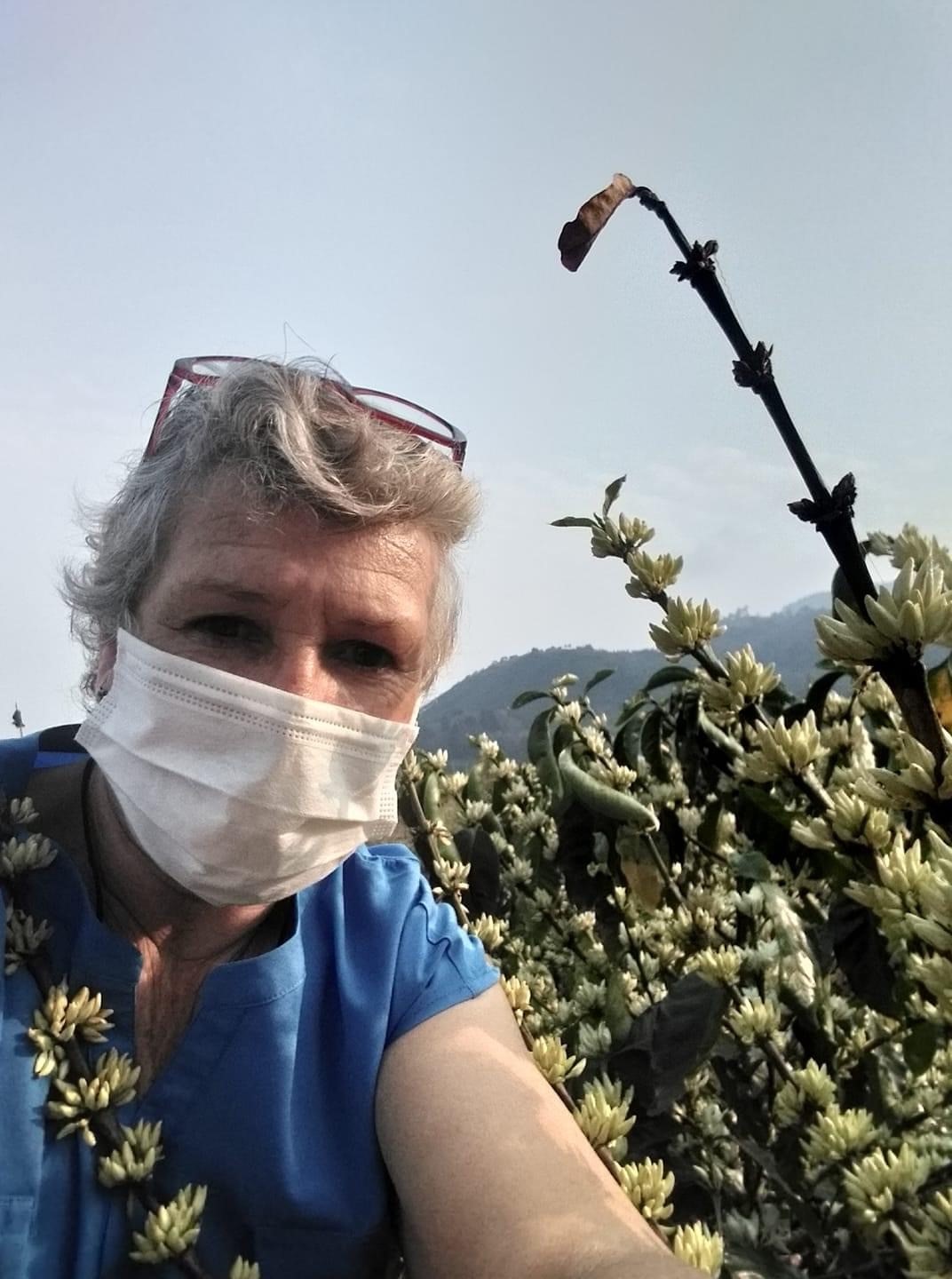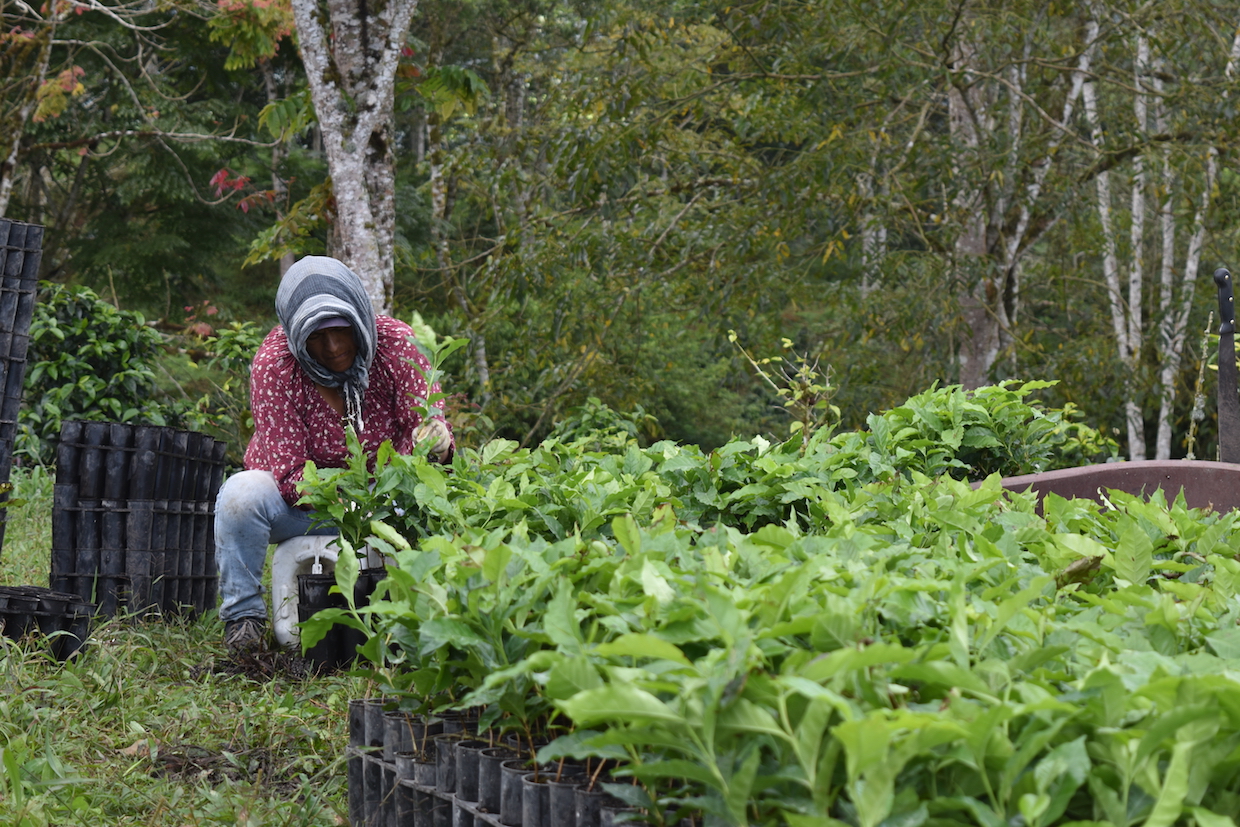Over the past 18 months, we have been working with a small network of forward-looking specialty coffee producers and supporters in Guatemala and El Salvador.
In the wake of the latest coffee price crisis, these coffee professionals are helping to develop and pilot the Grounds for Empowerment Business Tools Workshops, one of many initiatives aspiring to cultivate a more progressive global market for specialty coffee producers.
Little did we know that right after our third workshop closed in March, the global pandemic would rock our colleagues in the coffeelands.
We reached out to numerous coffee producers and other coffee professionals in Guatemala and El Salvador to hear about how their operations have been affected in recent weeks. These conversations helped shine a light on a side of the coffee value chain that has too often been left in the dark as the COVID-19 response has spread throughout the world.
Unfortunately for many producers, the COVID-19 pandemic is further straining operations that were already squeezed by the leaf rust pandemic that began in 2012, as well as the ongoing price crisis.
Here is what our colleagues in Guatemala and El Salvador would like us all to know:
Coffee farms are experiencing immediate disruptions
Producers who are harvesting and processing the last of their 2020 coffees face staffing and scheduling challenges as internal movements become more difficult.
In the wake of COVID-19, both Guatemala and El Salvador established lockdowns and curfews. While many industries shut down completely, agriculture was considered essential and not covered by these prohibitions.
However, there are still problems for coffee farms. Workers who live close to farms and dry mills can mobilize, but those who live farther away struggle to find reliable transportation to and from work. At the same time, limited banking hours and services mean that many farm owners are struggling to get cash to pay their workers.
Ashley Prentice of Gento Coffee in Guatemala told us that many producers are seeing increased operating expenses as they contract dedicated transportation services for workers while investing in additional health and protective measures. At the same time, she said that many coffee buyers were forced to cancel their origin trips. The uncertainty in the market about the immediate future has many buyers hesitant to confirm purchases, with others buying lower volumes.
We must all remember that these logistical uncertainties and higher production costs are coming during the current price crisis.
Additional disruptions are occurring beyond the farm gate
After coffees are processed and sold, they must make it to market. Ana Lucrecia Glaesel and Luisa Fernanda Correa from Guatemala’s National Coffee Association (Anacafé) said some ports are unfortunately experiencing major slowdowns.
Ships and containers are not arriving due to international restrictions. Export permits are also taking longer to process due to staff reductions in various offices. The Salvadoran Coffee Council (Consejo Salvadoreño del Cafe) has a limited staff working on-site. The rest are working from home.
These delays can lead to canceled contracts. For other buyers who actually want expedited shipments, there is limited capacity to meet their requests given the permitting delays. All of this means that coffees that are ready to export might wait at the port for extended periods.
This delays the arrival of critical farm revenues, and affects revenues for support organizations like Anacafé, which uses these funds to support coffee producers with technical assistance, a research center, multiple labs, a roaster, and a coffee school, while promoting Guatemalan coffees nationally and internationally.
In addition to their immediate effects on cash flows, it is unknown whether, or how, such bottlenecks will work themselves out in the coming months.
As René Leon-Gomez from PROMECAFE told us, producers have additional worries about the effects that COVID-19 will have on the final demand for their coffees, and therefore prices.
Furthermore, there are concerns among producers that shipping delays might affect coffee quality, potentially resulting in strained relationships with buyers.
Support structures are strained
Farmer support organizations know that coffee producers are still dealing with the price crisis and with climate change. However, as COVID-19 disruptions create more challenges for coffee producers, they are even more constrained — for several reasons.
First, technicians are unable to get to some farms to offer advisory services. Ana Lucrecia and Luisa Fernanda of Anacafé described how the group had to minimize in-person technical assistance at the end of March due to distancing, mobility and scheduling restrictions. They relied on SMS, Whatsapp, phone and video calls for farms that they have not been able to visit during this time.
Second, support organizations are being forced to rework budgets to support immediate needs related to COVID-19. Both the Consejo Salvadoreño del Cafe and the Inter-American Institute for Cooperation in Agriculture (IICA) had to put several investment and training projects on hold to free up funds for these more immediate needs.
Third, as PROMECAFE’s René Leon-Gomez reminded us, many national coffee institutions are facing a reduced capability to support producers because of decreased funding, which is tied directly to coffee exports and prices.
Facing this trifecta of challenges — prohibitions to visiting farms, increased responsibilities, and fewer resources — groups like Anacafé are helping some specialty coffee producers move their smaller lots using air freight.
In Guatemala, Anacafé and FedEx have negotiated special airfreight rates for Anacafé’s associates for the shipment of micro lots. This gets some of the premium coffees to the market so that the money can get back to producers. At the same time, they are pushing efforts for increased local consumption.
Anacafés Ana Lucrecia stressed that the group “is taking it one day at a time and understands that things are changing from day to day. Today, we feel proud that we are able to support the sector in the best way possible, given the circumstances.”
Producers need reliable partners
This prolonged period of mandated isolation or social distancing reminds us of how important it is to stay connected. Gabriela Flores of J. Hill y Cia and Marjorie Canjura of Belco Café, both based in El Salvador, said that buyers with deeper relationships are likely less inclined to cancel contracts.
Gento’s Ashley Prentice reflected on how conversations with her long-term buyers — covering a range of topics from business to life in general — can provide critical peace of mind.
There was collective belief among our sources that coffee producers who have reliable long-term relationships will be in better positions to invest coming out of the COVID-19 crisis, in large part because there is a common interest in maintaining a future for specialty coffee.
Ashley suggested that coffee buyers should keep the lines of communications wide open and continue investing in their relationships. J. Hill y Cia’s Gabriela Flores took that concept a step further by suggesting that the most progressive buyers should consider committing to multi-year purchases, providing incentives to build capacity for future harvests.
Belco’s Marjorie Canjura urged producers to keep looking for ways to differentiate, while continuing to tell their stories. As global restrictions ease, marketing will play an important role in rebuilding efforts.
Across the board, our colleagues also noted the resiliency of coffee communities. You don’t have to page back too far to identify the numerous major crises that have fallen upon coffee producers. While they continue to deal with coffee leaf rust disease (la roya) and the coffee price crisis, they’ll also have to navigate the logistical and economic realities of the COVID-19 response.
To bolster this underlying resilience, coffee producers must have a network of support so that they are not alone — not now nor during the rebuilding period that is sure to come.
Peter Roberts and Giselle Barrera Carias
Peter Roberts and Giselle Barrera Carias are part of the team that leads the Grounds for Empowerment Program. Peter is the Emory University professor who founded Transparent Trade Coffee and the Specialty Coffee Transaction Guide. Giselle lives in El Salvador and works as Latin American programs lead for Social Enterprise @ Goizueta. These programs include the Grounds for Empowerment Business Tools Workshops in Guatemala and El Salvador, which empower women coffee farmers to participate more effectively in specialty coffee markets.










Comment